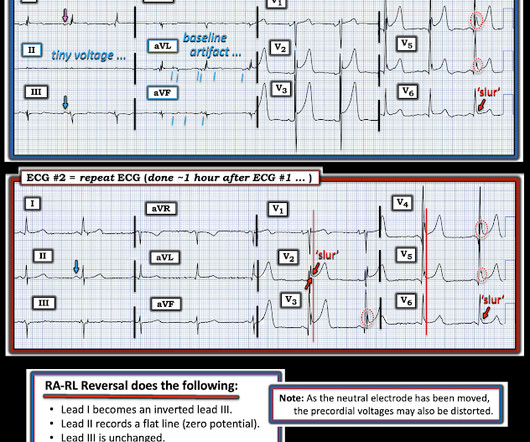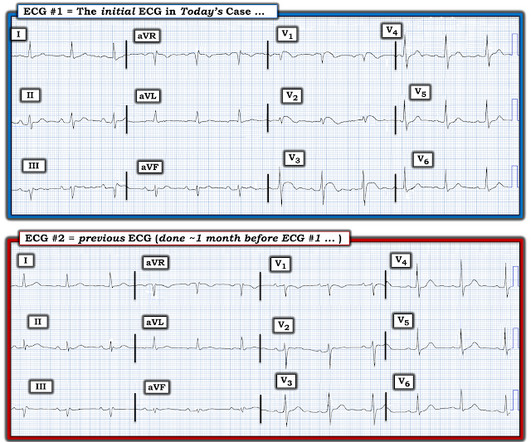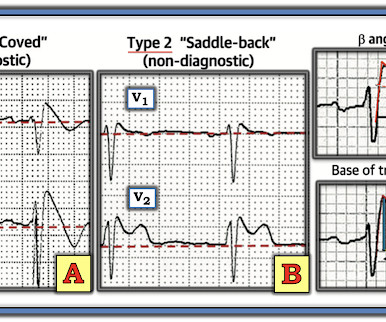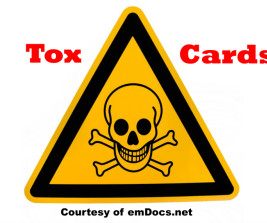Hyperthermia and ST Elevation
Dr. Smith's ECG Blog
JANUARY 30, 2019
Our patient had a Brugada Type 1 pattern elicited by an elevated core temperature, which is also a documented phenomenon. Alexandra Schick ( with edits by Dr. Smith ) of an elderly woman who was seen in the ED for altered mental status, hyperthermia, and the initial ECG shown above.





















Let's personalize your content